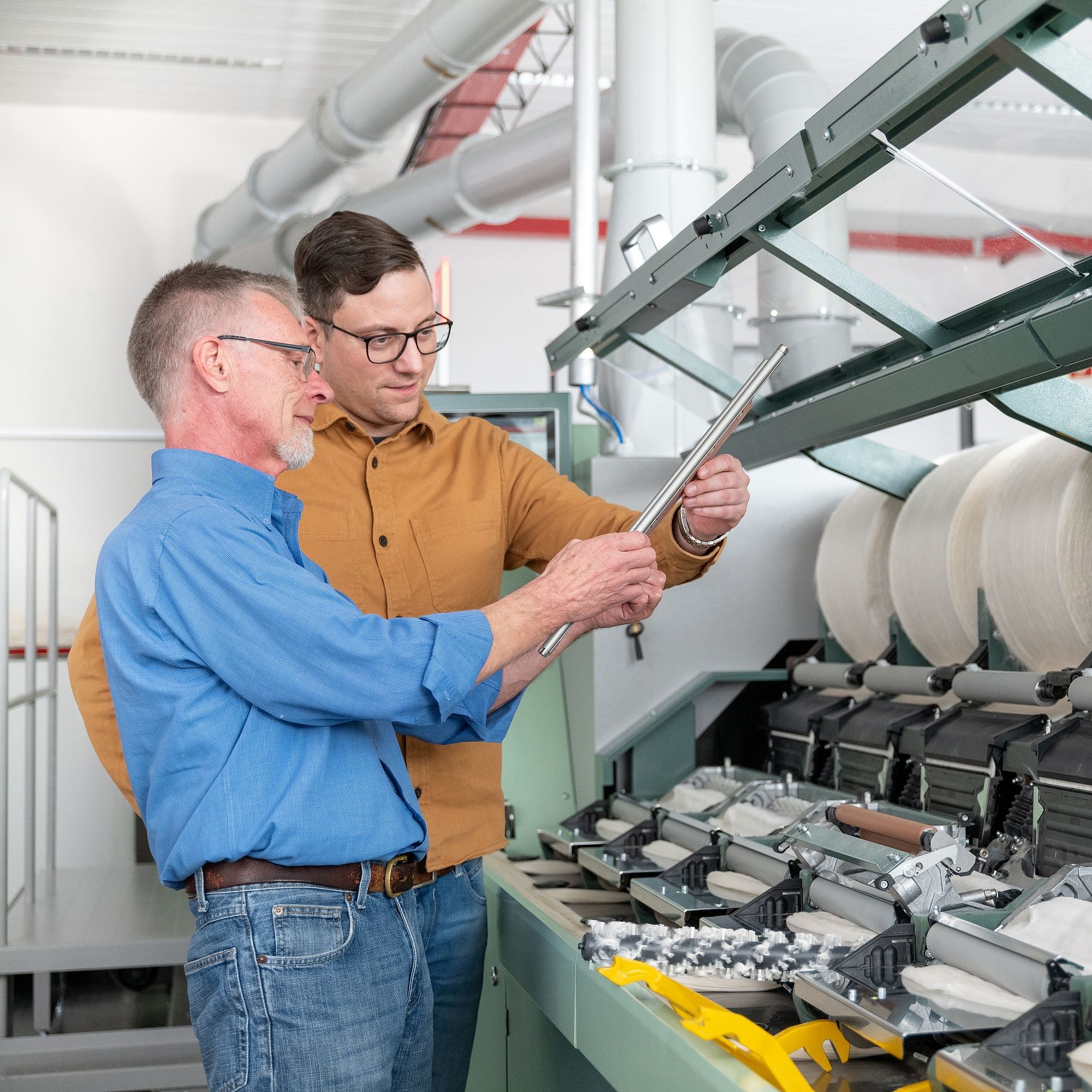Materiality Analysis

In 2023, Rieter conducted a materiality survey among the company’s key stakeholder groups. The aim was to identify the most relevant environmental, social and governance issues for the company, so that the Group could better align its sustainability strategy. The response rate was a high 83.7 percent.
The company surveyed customers, representatives, suppliers, banks, associations, the Board of Directors, the Group Executive Committee and Rieter employees. They responded to 26 questions on the 12 key topics of the European Sustainability Reporting Standard (ESRS). Four questions about corporate culture were directed exclusively to employees.
Focus on environmental issues
Based on an analysis of the survey results, five new key areas are important for Rieter in terms of long-term value creation. Three of these relate to the environment:
- Biodiversity (ESRS – E4)
- Circular Economy (ESRS – E5)
- Climate Change (ESRS – E1)
- Own Workforce (ESRS – S1)
- Business Conduct (ESRS – G1)
Cutting-edge spinning technology from Rieter contributes to sustainability in the textile value chain by minimizing the use of resources. Accordingly, the analysis clearly highlights Rieter’s potential to create sustainable added value, particularly in the area of biodiversity. The company also actively develops textile recycling technologies and shares important know-how through specialist publications and other means. As a leading supplier, Rieter believes it has a responsibility to play a key role in promoting the circular economy. To this end, the company works with recycling specialists at other process stages of the textile value chain, such as Recover, a leading global producer of environmentally friendly recycled cotton fibers and cotton fiber blends. To address climate change, the company has set energy efficiency targets for 2025 and 2030 for all spinning technologies.
Rieter employees recognize the importance of continuous learning to increase business success. The recently launched learning platform will help them to further advance their professional development. Other key factors are the safety culture, a varied and inclusive working environment, and diversity: Rieter plans to increase the proportion of women in management positions to over 20 percent by 2025. The company is committed to continuing to provide an attractive work environment for a diverse and highly talented workforce.
The results of the business conduct analysis are a clear indication of just how important corporate culture is at Rieter. The secure integrity line operated by an external provider for reporting suspected violations of laws and regulations is highly valued. Rieter has a zero tolerance policy toward any form of harassment or discrimination. The company is developing additional policies to continue to ensure a safe and inclusive workplace for all.

A balanced focus
Issues relating to employees in the value chain, consumers and local communities are important to Rieter, even if they are outside the primary focus area. The company ensures compliance with the Code of Conduct, which is an integral part of all employment contracts. A vast majority of suppliers has signed the Supplier Code of Conduct. Rieter has close ties to the company’s locations and is actively involved in effective social initiatives in its key markets, such as relief efforts for earthquake-affected communities in Türkiye and support for local communities in India.
The textile industry as a whole has been criticized for its water consumption, particularly in cotton production, downstream processes and during the use phase. The manufacture of spinning machines, consumables, wear & tear and spare parts and the spinning process itself require very little water.
Pollution of the environment is recognized by the participants as an important issue. Nevertheless, the analysis shows that Rieter, as a supplier of spinning technology, can exert only a limited influence.
Looking to the future
The results of the materiality analysis confirm that Rieter’s research and development strategies set the right priorities. By focusing increasingly on digitization, automation and artificial intelligence, the company will make an important contribution to improving sustainability in the textile value chain. Rieter continues to promote cross-industry collaboration to drive significant recycling initiatives and actively shape the development of a circular economy. In addition, Rieter plans to develop a net-zero strategy in the 2024 financial year.







